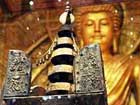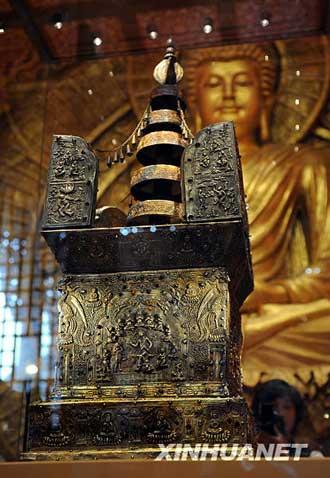| Videos | • Latest |
|
• Feature | • Sports | • Your Videos |
Will the miniature stupa reveal Buddha relics?

Having gone through more than three years of excavation, archeologists in Nanjing, the capital of east China's Jiangsu Province, have disclosed more information of the miniature stupa in the Dabaoen Temple. The site is believed to hold the Buddhist relics of Sakyamuni, founder of Buddhism.
Excavation of the Dabaoen Temple began in 2007. In November 2008, archeologists unearthed a stupa-shaped casket, which is believed to be one of the 84-thousand stupas of King Asoka that contain Sakyamuni's sarira, that is, part of his remains.
The miniature stupa is 1.8 meters in height, embedded with more than four-hundred-and-fifty diamonds. It is the largest of its kind unearthed in China so far.
Asoka was an Indian emperor who, according to Buddhist records, collected all the parts of Buddha's remains, divided them into 84,000 pieces and stored each one in a stupa-shaped casket. Then he sent the relics to different regions around the world.
Archeologists had earlier unearthed a stele with an inscription that says the miniature stupa in the Dabaoen Temple contains a gold mini-coffin wrapped by a silver coffin cover. The gold coffin is believed to hold Sakyamuni's sarira.

 0
0 







Go to Forum >>0 Comments